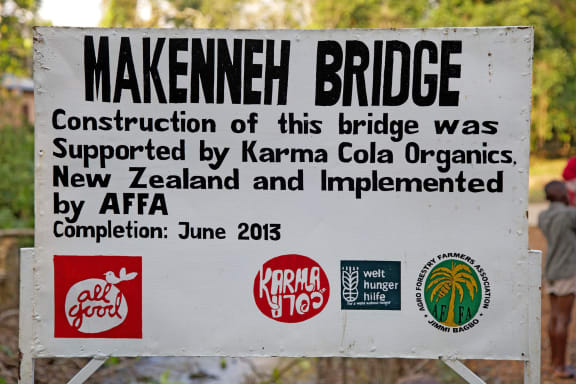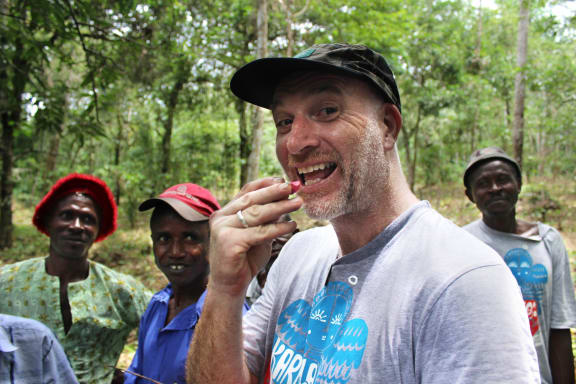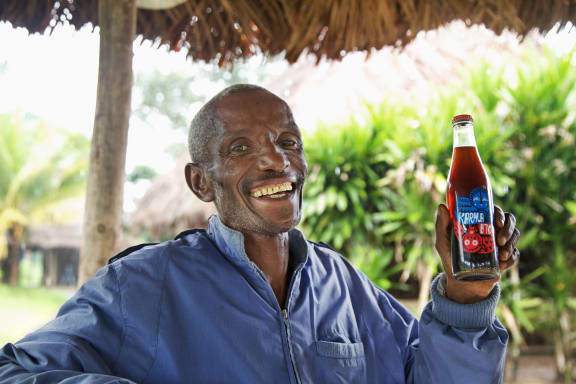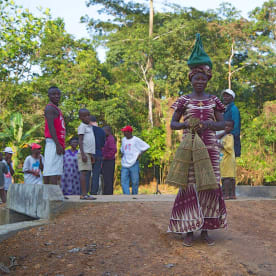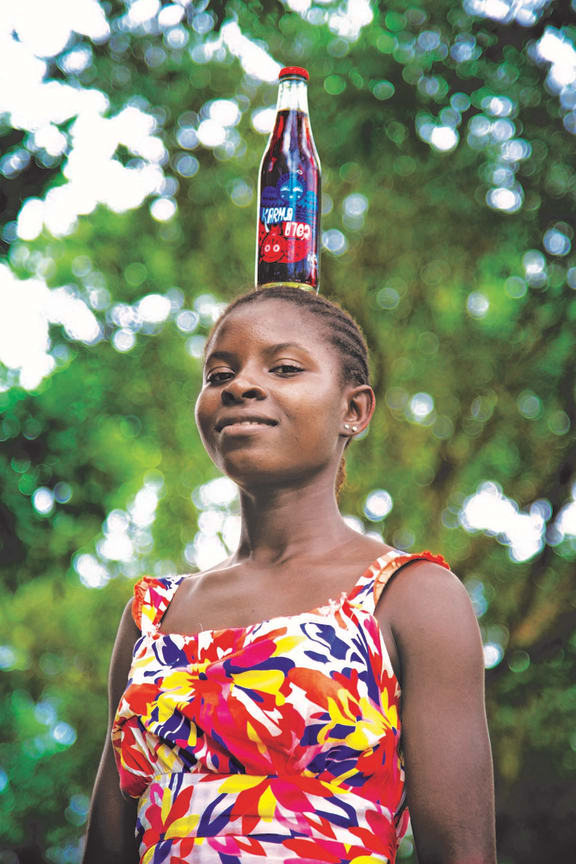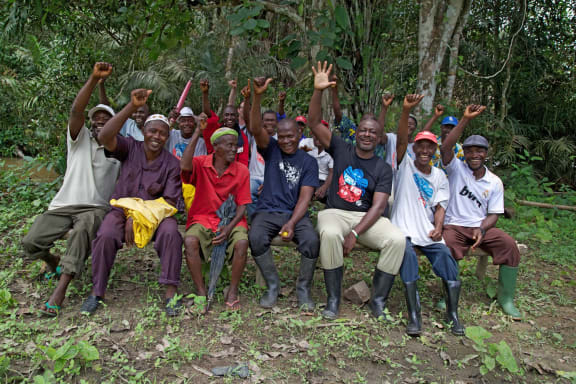Despite the two billion cola drinks consumed daily around the world, there was no such thing as a fairtrade certified cola nut until three years ago. So Karma Cola came around.
Since Karma Cola bottled its first batch in 2012, the company has given back $100,000 towards infrastructure, schools and environmental projects in the cola growing community of Boma, Sierra Leone.
Simon Coley and brothers Matt and Chris Morrison (formerly of Phoenix Organics) were at a climate change conference in Australia when the idea of producing a fairtrade certified cola drink came about. “We wanted to be able to prove that the people producing the main ingredient in the product benefit from the consumer buying it.”
First up was setting up relationships with the cola farmers.
Fairtrade pioneer Albert Tucker (originally from Sierra Leone) introduced them to locals who could source the ingredients.
“Our exploration of whether it was possible to make the product led to the relationships that enable us to produce it.”
Simon, Chris, and Matt had first learnt about the importance of transparency in supply chains through importing other fairtrade products, such as bananas. Simon says the company’s high level of transparency means that Karma Cola customers don’t actually ‘have’ to trust them. “They can see that there’s a direct benefit because of the product they’re buying.”
“The world probably has enough of everything. If you’re going to make something new it better make a contribution.”
Simon Coley's 8 tips for setting up an ethical business
1) WHY First off, answer this question 'beyond making money, why are you in business?' In 10 years how will the planet, or people on it, benefit because from what you're doing?
2) WHAT If you're in business to change the world you need to stay in business - make sure your business idea addresses an emerging trend, an unmet need or does something no one else can do as well as you.
3) DIG Investigate your supply chain and the impact you/your business will have all along the way. Understand the effect of every decision, from packing to employment to how you communicate, to people you partner with.
4) OPEN Be prepared to show everyone every step of your business. Transparency is essential for trust.
5) WATCH Find other brands or businesses doing what you want to do and do the opposite. If everyone is earnest, be witty. If everyone is trying to be PC, be shocking.
6) LISTEN The people who buy your product or service will teach you more than any business school or list of tips from so called experts.
7) BUILD If you really want to do good, and have a long term impact, then have the social innovation or purpose built into the DNA of the business. That's the key.
8) SHARE Great business, product and service ideas inspire people to share them. The urgent need to create ways of transforming materials and transacting in ways that repair some of the harm we've done to our planet is a story millions are willing to share. Make sure you tell yours in a way that allows them to do just that.


